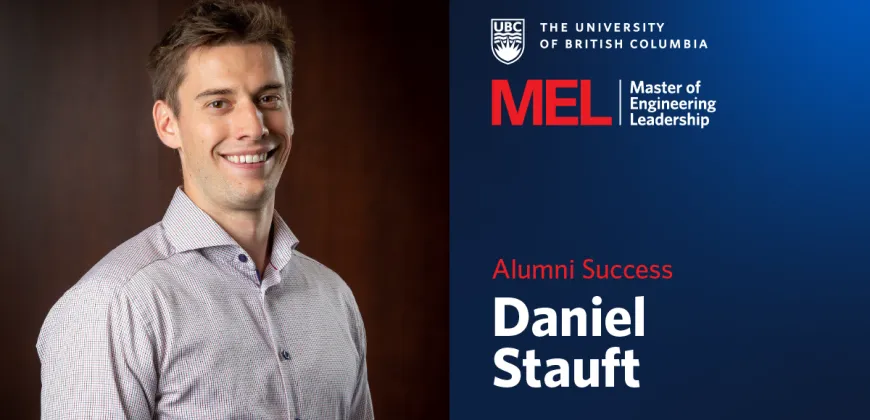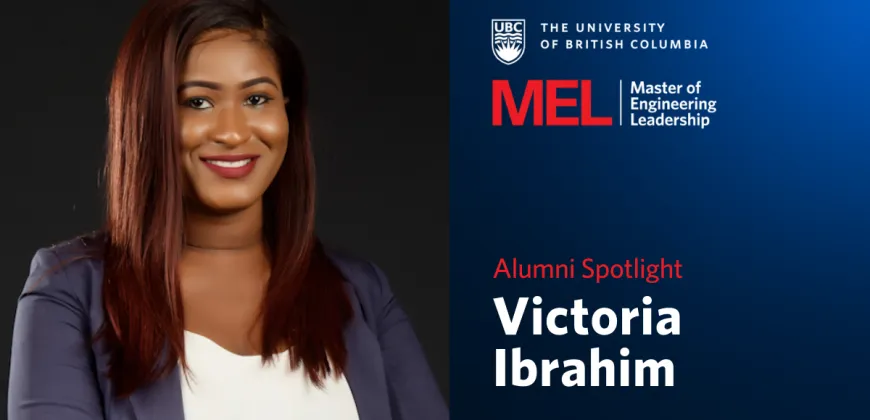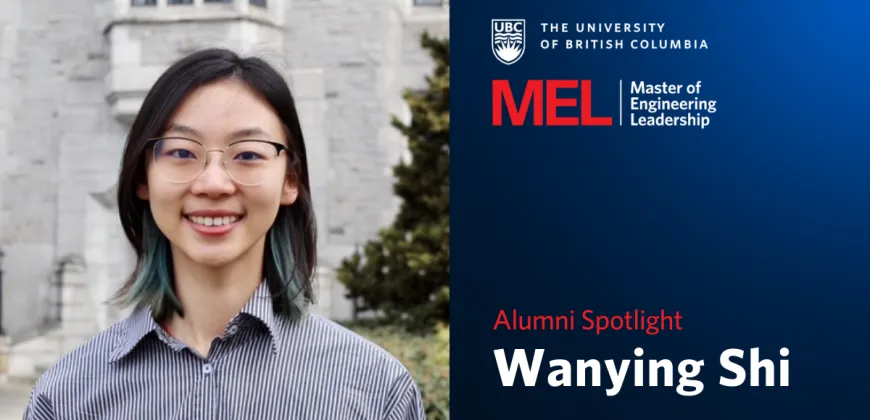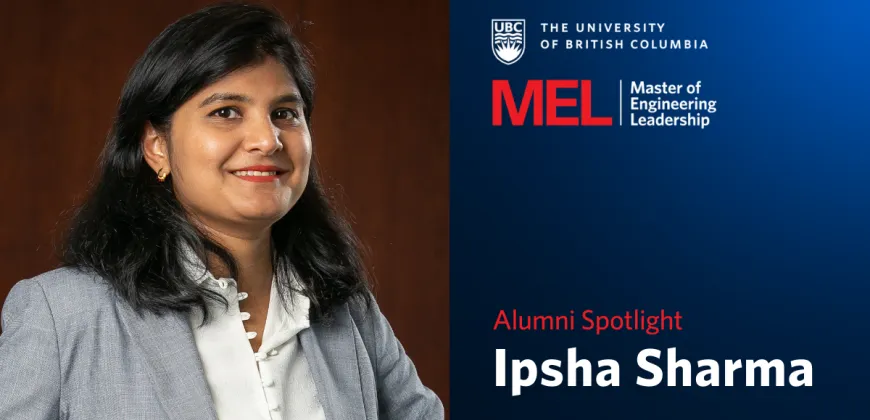Alumni Spotlight: Daniel Stauft
For Daniel Stauft, the MEL in Clean Energy Engineering was pivotal in gaining the sustainable energy knowledge, contacts and experience to shift into a new area of engineering practice.

After graduating with a degree in chemical engineering, Daniel Stauft worked for five years in the energy industry, in both oil and gas and nuclear power. He spent two-and-a-half years in northern Alberta working for a small oil and gas producer before moving to Ontario where he was a systems engineer for Bruce Power, a large electric utility.
“I knew I wanted to pivot and be more directly involved in the energy transition, but there are so many career paths available in this field, from energy storage, renewable energy systems and carbon capture to energy policy and low carbon buildings,” he says.
“As I was researching academic programs, the MEL in Clean Energy Engineering stood out because it provides a full suite overview of all these areas. It fit my professional goals of wanting to learn about these different areas of practice before deciding which I wanted to pursue in my career.” He says that the dual technical and business focus of the MEL was also a selling point.
“There’s the technical side to the energy transition, but it is also important for leaders in the clean energy sector to be financially literate. I felt like the business and leadership courses really helped me expand my knowledge of that side of the equation.”
A focus on renewable energy and energy innovation
The MEL in Clean Energy Engineering is an interdisciplinary program that includes technical courses covering energy generation, transmission and distribution, and energy use and management, and business courses focusing on strategy, leadership and innovation.
“I really enjoyed the sustainable energy systems course, which explored clean energy technologies from solar and hydro to tidal and geothermal,” he says.
“As part of this course we wrote an in-depth paper on a system of our choosing. I focused on the potential of small modular nuclear reactors and the benefits and challenges associated with implementing them in North America.”
Students complete a capstone project in their final semester, where they work with a partner organization to address a real-world issue. For his capstone project, Daniel teamed up with a local consulting firm, Navius Research, to complete a techno-economic assessment of ocean-based carbon capture. The results of the assessment showed that novel ocean-based carbon capture technologies have high potential to compete with more established land-based technologies; and that given its vast coastline, BC is well placed to drive forward the development of this technology.
He was also selected to participate in the Sustainability Scholars Program, a four-month paid internship that enables UBC graduate students to work with sustainability partners on and off campus. Daniel worked for Metro Vancouver and was responsible for developing a tool to assess the market readiness for zero-emission vehicles for use in government fleets.
Daniel says that the MEL’s holistic curriculum encouraged him to explore areas that were new to him.
“I discovered that I am very interested in energy policy,” he says. “This was a surprise to me as I had thought of myself more as a technical engineer, mainly because I hadn’t had exposure to policy before.”
Working for BC’s utility regulator
Immediately after graduating, Daniel began working as a regulatory engineer for the British Columbia Utilities Commission (BCUC), the organization responsible for regulating the province’s public utilities. Any time an energy utility like BC Hydro, Fortis or Pacific Northern Gas wants to build, enhance or operate a facility, they often require approval from the BCUC. Engineers like Daniel then review the proposed project to make sure it is in the best interest of ratepayers and in alignment with the province’s clean energy goals.
“I get a lot of job satisfaction from knowing that the purpose of my role is to ensure that energy consumers in the province have access to clean, affordable and reliable energy,” he says. “I feel good at the end of the work day.”
His advice for other students is to stay open to new opportunities. “Get involved as much as you can, attend networking events and grow your contacts. Apply for the Sustainability Scholars Program and find a capstone project that genuinely interests you and that you could see yourself potentially pursing as a career. And keep an open mind!”
“I had no idea that I would be so interested in the energy policy side of things until I took the energy policy course. I’ve since transitioned into a role within the public sector, one I certainly would not have envisioned myself before my MEL experience,” he adds.
–
Take the steps to join the next cohort of engineering leaders. If you haven’t already, assess your eligibility and sign up for the upcoming information session to learn how to submit a strong application. Learn more about this innovative master’s program:



